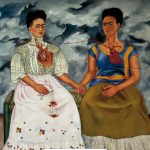Goethe-University Frankfurt am Main; Romana Radlwimmer
Time: 15.-17.02.2023
Venue: Goethe-University Frankfurt am Main
Proposals by: 04.12.2022
The power over life and death defines healthy bodies and adequate remedies through policies determining that which is diseased – the origin, development, and outcome of illness (Esposito 2011). When in 1562 smallpox arrived with a European slave ship from Africa to Salvador de Bahia, causing contagion of pandemic proportions, Jesuit friars blamed local beliefs and shamanism to be the root cause and reinforced missionary work as only possible treatment. José de Acosta describes the pustules on skin, tongue, and mouth, inhibiting confession, and Leonardo do Vale reports that the ones most affected were the native slaves, living in squalid conditions, and among them, especially pregnant women, and elders – demonstrating the intimate link between pathology and race, gender, social belonging (“class”), or age. Colonial slavery, a form of biopolitical experimentation (Mbembe 2003), disproportionally raised the rates of indigenous infection, which reciprocally fostered massive slave trade with Africa (Alden/Miller 1987). Read more and source … (Web)
The investigations may be guided by, but are not limited to the following questions:
- Which narratives position (post-)colonized bodies between well-being and pathology?
- How do policies of race, class, or gender operate on ill bodies?
- Which agencies respond to the imperial imposition of pestilence and medical substances, as well as to the erasure of local health practices?
- How have groups been tasked with designing forms of immunity?
- How are life and death being granted or refused during health crises?

 Department of Slavonic Studies
Department of Slavonic Studies  Bibliothek MONAliesA
Bibliothek MONAliesA  Reihe „Balkanforschung an der ÖAW“
Reihe „Balkanforschung an der ÖAW“  Tierstudien
Tierstudien  Lehrstuhl für Frühe Neuzeit und Geschlechtergeschichte am Historischen Institut der Ruhr-Univ. Bochum; Maren Lorenz
Lehrstuhl für Frühe Neuzeit und Geschlechtergeschichte am Historischen Institut der Ruhr-Univ. Bochum; Maren Lorenz  Babeș-Bolyai University and Transylvanian Museum of Ethnography
Babeș-Bolyai University and Transylvanian Museum of Ethnography 